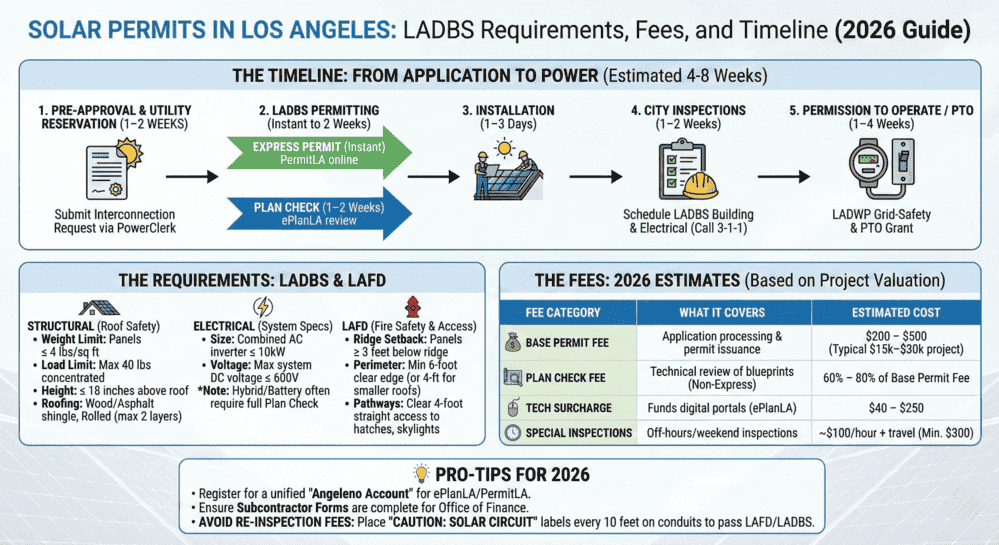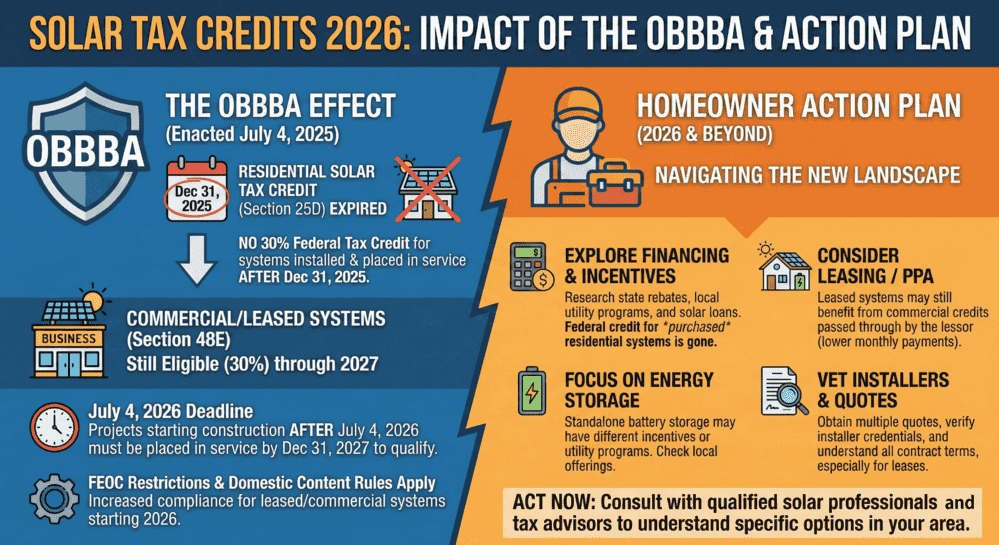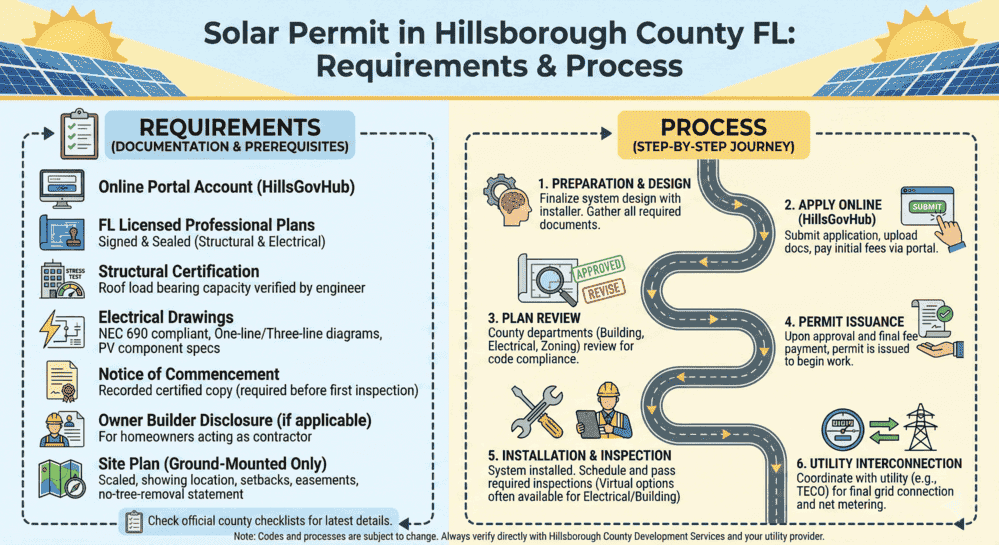Con Edison solar customers in New York can reduce electricity bills from $150 to approximately $30 per month through solar panel installation. Here’s what homeowners need to know:
Solar Savings with Con Edison:
- Average monthly bill reduction: $120 ($1,440 annually)
- Solar payback period: 6-7 years
- Net metering program: Phase One Net Metering with Customer Benefit Charge
- Installation timeline: 3 weeks to 3 months
- System cost after incentives: Approximately $8,500 (down from $18,000)
Required Monthly Charges That Solar Cannot Eliminate:
- Customer Benefit Charge (CBC): $1.84 per kW of solar installed
- Standard customer charge: $17.00
- Total non-bypassable charges: Approximately $30/month for a 7 kW system
Available Incentives for Con Edison Territory:
- Federal solar tax credit: 30% of installation costs (ENDS December 31, 2025)
- NY State solar tax credit: 25% of costs (capped at $5,000)
- NY-Sun Megawatt Block Program: $0.20 per watt ($200 per kW)
- Combined incentive value: Approximately $9,500 for average systems
Con Edison Net Metering Details:
- Credit type: Private Solar Usage Credits
- Credit value: 1:1 kilowatt-hour at full retail rates
- Rollover policy: Credits accumulate for 20 years (no annual cash-out)
- Recommended rate plan: Standard rate plan (not time of day)
New York ranks among states with the highest electricity rates, making solar particularly cost-effective for the 3.3 million customers served by Consolidated Edison. This guide provides comprehensive information on the solar installation process, Phase One Net Metering program details, available incentives, interconnection requirements, and financial considerations specific to Con Edison’s service territory.
Key Takeaways
Con Edison customers installing solar after January 1, 2022 receive net metering with a mandatory monthly Customer Benefit Charge of $1.84 per kW.
Solar panels eliminate the majority of monthly bills, though customers will continue to receive bills consisting of non-bypassable charges, fees, and taxes totaling approximately $30 monthly for a typical 7 kW system.
New York State’s solar tax credit, the NY-Sun incentive, and the federal solar tax credit reduce installation costs by thousands of dollars. However, the federal tax credit expires December 31, 2025.
The complete installation process takes between three weeks and three months in Con Edison’s territory.
Despite the Customer Benefit Charge, net metering benefits and high electricity rates make solar a worthwhile investment for customers in this service area.
Understanding Con Edison’s Solar Energy Purchase Program
Con Edison purchases excess solar energy through net metering with a Customer Benefit Charge. Systems installed after January 1, 2022 participate in Phase One Net Metering with an additional monthly CBC fee. The system works as follows: solar panels first supply energy to power the home. When solar production exceeds household consumption, excess energy flows to the grid.
In return, Con Edison provides credits on utility bills called “Private Solar Usage Credits”, valued at one kilowatt-hour (kWh) of electricity each. These credits offset the cost of grid electricity used during evening hours when solar panels are not generating power. Given Con Edison’s elevated electricity rates, net metering delivers substantial savings on monthly bills despite the CBC charge.
Understanding several additional aspects of Con Edison’s net metering program provides a complete picture of how the system functions.
Customer Benefit Charge (CBC)
As part of New York’s transition toward a more equitable solar billing system, the state government requires utilities to charge net-metered customers a “Customer Benefit Charge”, abbreviated as CBC. This charge applies to all systems installed after January 1, 2022.
The CBC appears as a monthly charge on electricity bills based on solar system size. For customers in this service area, the CBC rate equals $1.84 per kilowatt (kW) of installed solar capacity. A 7 kW solar system results in an additional $12.88 monthly charge ($154.56 annually). Solar credits cannot offset the CBC charge.
While this represents an additional expense, the charge remains manageable when weighed against overall solar savings from reduced energy costs.
Credit Rollover
Under Phase One Net Metering rules, leftover solar credits roll over without annual cash out requirements.
Private Solar Usage credits accumulate from month to month and year to year until the end of the 20-year net metering contract. However, any remaining credits expire at the contract’s conclusion. Systems installed after January 1, 2022 receive these same rollover benefits but also pay the monthly CBC charge.
Rate Plan Selection
Con Edison offers two residential rate plans: the standard rate plan and the time of day rate plan. Both options accommodate net metering customers. However, solar panel owners should select the standard rate plan to maximize savings potential.
The time of day plan charges varying prices for electricity throughout the day. This structure means credits generated during off-peak periods, when electricity costs less, can only offset energy consumed from the grid during other off-peak periods. This limitation reduces potential cost reductions and results in lower overall savings.
Value of Distributed Energy Resources (VDER)
New York is transitioning from traditional net metering to a solar billing program called the Value of Distributed Energy Resources (VDER), or Value Stack, program. Currently, VDER participation remains optional rather than mandatory. The VDER program may produce lower solar savings overall compared to net metering, though it offers a lower CBC rate (approximately half the net metering CBC rate). For most homeowners installing systems after January 1, 2022, remaining with the standard net metering plus CBC structure typically provides better overall savings.
How Solar Impacts Your Con Edison Bill
Solar panels eliminate the majority of monthly bills. The energy charge portion, which represents the largest component of utility bills, can be completely eliminated through solar panel installation.
Solar panels cannot cover mandatory charges, taxes, and fees. As mentioned earlier, the CBC charge adds $12.88 per month for a typical 7 kW system. Residential customers also pay a $17.00 customer charge under the standard rate plan. These two charges alone total approximately $30 monthly.
However, $30 represents a significant reduction from typical $150 pre-solar electricity bills. These savings accumulate to approximately $1,440 annually.
Solar Permit Solutions
Need Solar Permit Plans?
Professional, permit-ready solar plan sets delivered fast. Residential and commercial projects across all 50 states.
New York Solar Incentives And Rebates
Con Edison does not provide solar incentives or rebates for customers. However, state incentives and federal programs significantly reduce upfront solar costs for homeowners in this service area.
The state’s NY-Sun Megawatt Block Program provides homeowners who install solar with $0.20 per watt, or $200 per kW, of installed solar capacity. This translates to approximately $1,400 in rebates for average-sized 7 kW solar systems. Note that Block 9 is nearly at capacity with limited funding remaining.
New York also offers a state tax credit equal to 25% of installation costs, capped at $5,000. Combined with the 30% federal solar tax credit, these incentives save thousands of dollars on solar installation.
With both state and federal solar tax credits plus the NY-Sun incentive, average solar system costs drop to approximately $8,500. Without incentives, total costs would approach $18,000.
Incentive Timeline Considerations
Current incentives available to homeowners in this service area are substantial, but they have limited availability. The 30% federal tax credit ENDS December 31, 2025 under the One Big Beautiful Bill Act passed in July 2025. Systems must be fully installed and operational before this deadline to qualify.
The NY-Sun incentive will also expire once the program reaches its funding cap, with Block 9 currently nearly at capacity. Delayed solar adoption could result in missing out on thousands of dollars in savings, particularly with the imminent federal tax credit expiration.
Do Con Edison Customers Need Solar Batteries?
Solar batteries are gaining popularity as additions to solar installations nationwide as more homeowners seek backup power access. However, batteries are not necessary for customers in this service area. Con Edison provides net metering for solar customers, meaning battery addition costs at least an extra $10,000 without providing additional electricity bill savings.
Solar panel installation in New York remains relatively affordable due to available incentives. Adding energy storage does not represent a poor financial decision, as decent solar payback periods remain achievable.
The bottom line: batteries are not required for solar installations. However, those who want assurance that lights and several appliances will function during power outages may find solar battery purchases worthwhile.

Con Edison’s Solar Interconnection Process
Solar installation extends beyond simply mounting panels and activating the system. Additional paperwork and requirements ensure solar panels operate safely. This is generally referred to as the interconnection process, and solar installers handle most aspects.
The timeline from application start to system activation varies considerably. Expect no less than three weeks, but prepare for timelines extending to three months.
Step 1: Application Filing
Solar installers complete interconnection applications for submission to Con Edison. Application packages consist of multiple items including signed contracts, system descriptions, system designs, and product details.
Upon receipt, Con Edison has ten business days to review and either approve or deny applications. Con Edison also alerts applicants if grid upgrades are necessary to support proposed systems. When required, upgrade costs fall to customers but generally do not exceed $350.
Step 2: Permit Acquisition
Obtaining necessary permits represents the longest portion of the entire process. Permitting requirements vary by municipality, so no universal answer exists regarding which permits are required to complete installation.
All permits must be received before system installation can begin. Permitting timelines range from one week to six weeks.
Step 3: System Installation
Once written approval arrives from Con Edison, solar installation can proceed. This represents the fastest portion of the entire process. Residential solar installations typically require only 6 hours to complete. More complex installations take approximately 3 days.
Step 4: Meter Configuration
When solar installation is complete, installers notify Con Edison. Within ten business days of notification, Con Edison installs new electricity meters required for net metering participation.
Step 5: System Testing
Before solar panels can be activated, installers must test and inspect them. New York State has required testing procedures that must be followed.
Con Edison presence during testing is not required, but the company may decide to send a representative. When this occurs, Con Edison and installers coordinate meeting times within ten business days of completed installation.
Step 6: Final Acceptance
Solar installers submit formal notification that system testing has been completed. Upon receipt, Con Edison supplies written acceptance letters within five business days. Solar panels are then ready for activation and begin powering homes with clean, renewable energy. For comprehensive support throughout the entire process, explore Solar Permit Solutions services.
Conclusion
Solar installation represents a worthwhile investment for customers in this service area. Net metering with the Customer Benefit Charge still delivers excellent solar savings despite the monthly CBC fee. Additionally, incentives currently available in New York State are exceptional. The combination of all incentives plus net metering means homeowners can achieve solar payback periods of 6-7 years. This results in over 18 years of significantly reduced electricity costs.
However, timing is critical. The 30% federal solar tax credit expires December 31, 2025, with no phase-down or extension. Systems must be fully installed and operational before this deadline. Additionally, the NY-Sun megawatt block program has limited availability and Block 9 is approaching capacity.
Maximum savings are available for customers in this service area who act immediately to meet the 2025 federal tax credit deadline. Contact Solar Permit Solutions for expert assistance with your solar project.
FAQs
Need Solar Permit Plans?
Professional, permit-ready solar plan sets delivered fast. Residential and commercial projects across all 50 states.
Frequently Asked Questions
The complete process from application to system activation typically takes between three weeks and three months. The actual physical installation of solar panels is the fastest part, usually requiring only 6 hours for standard residential systems. More complex installations may take up to 3 days. The majority of the timeline involves permitting, which can take one to six weeks depending on local requirements, and various approval stages with Con Edison that involve 10-business-day review periods.
Solar panels will eliminate the majority of monthly electric bills, but not entirely. The energy charge portion, which represents the largest component, can be completely offset. However, mandatory charges remain, including the $17.00 monthly customer charge under the standard rate plan and the Customer Benefit Charge (CBC), which costs $1.84 per kilowatt of installed solar capacity. For a typical 7 kW system, expect to pay approximately $30 per month in non-bypassable charges, compared to average pre-solar bills of $150 or more.
Under net metering rules for systems installed after January 1, 2022, excess solar energy generates Private Solar Usage Credits that roll over from month to month and year to year throughout the entire 20-year net metering contract. These credits accumulate continuously without annual cash-outs. However, any remaining credits expire at the end of the 20-year contract period. Credits are valued at one kilowatt-hour of electricity each and offset grid energy costs at full retail rates.
Without incentives, average solar systems cost approximately $18,000. However, combining available incentives significantly reduces this amount. The NY-Sun Megawatt Block Program provides $0.20 per watt ($1,400 for a typical 7 kW system), the New York State solar tax credit offers 25% of costs up to $5,000, and the federal solar tax credit provides 30% of installation costs. Together, these incentives can reduce the total cost to approximately $8,500 for an average-sized solar system. However, the federal tax credit expires December 31, 2025, so systems must be installed before this deadline to receive the full savings.
Solar batteries are not necessary for homeowners with Con Edison net metering. The net metering program already provides credits for excess solar production that can be used later, making batteries redundant for bill savings. Adding a battery costs at least $10,000 extra without providing additional electricity savings. However, batteries offer value for homeowners who want backup power during outages to keep lights and essential appliances running. Given New York's relatively affordable solar installation costs due to incentives, adding energy storage remains a reasonable option for those prioritizing energy security.
Solar panel owners should select the standard rate plan to maximize savings potential. The time of day plan charges varying electricity prices throughout the day, which creates limitations for net metering credits. Credits generated during off-peak periods when electricity costs less can only offset energy consumed during other off-peak periods. This restriction reduces overall cost savings. The standard rate plan allows credits to offset energy usage at consistent full retail rates, resulting in higher solar savings.
The Customer Benefit Charge (CBC) is a monthly fee required by New York State as part of the transition to a more equitable solar billing system. For Con Edison customers who install solar after January 1, 2022, the CBC equals $1.84 per kilowatt of installed solar capacity. A 7 kW system results in a $12.88 monthly charge ($154.56 annually). This charge cannot be offset with solar credits. The CBC ensures that solar customers contribute their fair share to public benefit programs and grid maintenance costs that were previously embedded in retail electricity rates.
SPS Editorial Team
Solar Permit Solutions
Solar Permit Solutions provides professional solar permit design services for residential, commercial, and off-grid installations across all 50 states. Our team ensures permit-ready plan sets delivered fast.
Related Articles

Solar Permits in Los Angeles: LADBS Requirements, Fees, and Timeline (2026 Guide)
Quick Answer: Solar permits in Los Angeles are issued by LADBS and require LAFD ...

Solar Tax Credits 2026: What Changed After OBBBA and What Homeowners Can Do Now
Summary: The federal residential solar tax credit (Section 25D) expired December...

Solar Permit in Hillsborough County FL: Requirements & Process
Hillsborough County solar permits require either an Electrical Trade permit for ...
